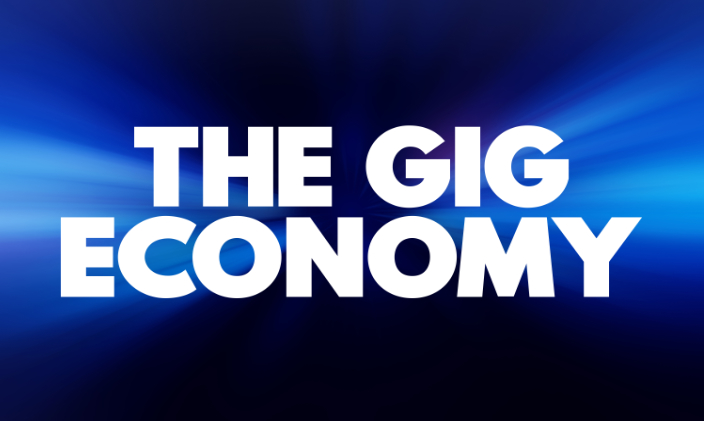College of Doctoral Studies
Center forĚýLeadershipĚýand Entrepreneurial Research
Calibrating research through the lens of business and entrepreneurial insight
About the center
The Center for LeadershipĚýand Entrepreneurial Research (CLER) regards the spectrum of business, entrepreneurism, and organization as all-encompassing, where the potentials of scholar-practitioner engagement intersect with industry dynamics to uncover the possibilities that emerge when research is applied.

Research Chair
Dr. Rodney Luster has been with the University since 2012. Rodney Luster is the Senior Director of Research Strategy, Innovation and Development for the Research Center Enterprise (RSE) within the College of Doctoral Studies

Assoc Research Chair
Dr. McCaslin has provided leadership within the °®ÎŰ´«Ă˝ network since the inception of the Research and Scholarship Enterprise (RSE) first began in 2013, having started the Center forĚýLeadership and Entrepreneurial Research (CLER), and then promoted to the role of Dean of the RSE for several years. He now serves dual roles within the university and is now the Associate Chair for CLER.
Contact Dr. McCaslin-mlmccasl@email.phoenix.edu
The Center for Leadership and Entrepreneurial Research (CLER) operates at the intersection of scholarship and industry, where research is not just an academic pursuit but a catalyst for real-world transformation. We view leadership, entrepreneurship, and organizational dynamics as an interconnected spectrum—one where scholar-practitioners engage deeply with evolving industry landscapes to uncover innovative solutions, drive strategic growth, and redefine what’s possible when theory meets practice.
At CLER, we champion research that extends beyond the academic realm, bridging the gap between knowledge and application. Our work fosters critical exploration into leadership effectiveness, entrepreneurial success, and organizational impact, equipping leaders with the insights needed to navigate complexity and create lasting change.
We are committed to being the foremost authority in leadership and entrepreneurial studies, recognized for delivering career-relevant research that significantly enhances the professional lives of working adults. Our expertise positions us as the most trusted provider in the field, driving impactful outcomes through our scholarly leadership.
We believe that through careful planning, preparation, and execution of impactful research studies on leadership and entrepreneurship, we can demonstrate effective scholarly leadership and contribute to meaningful and transformative change in our academic and professional communities.
- We are dedicated to creating an environment that supports and encourages professional development for the °®ÎŰ´«Ă˝'s faculty, students, alumni, and staff. Our goal is to collaboratively foster active and impactful research in leadership studies and entrepreneurship.
- We exist to inspire, support, and guide the professional development of the °®ÎŰ´«Ă˝ faculty through scholarly leadership.
- Scholarly leadership fosters a constructive and transformative relationship among experienced and aspiring Scholar/Practitioner/Leaders who aim to enhance their professional development and the communities of practice they serve through the intentional production and application of research.
For Stakeholders Advancing Leadership and Entrepreneurial Research Agenda– Faculty, Students, Alumni, and Staff
At the Center for Leadership Studies and Entrepreneurial Research (CLER), we are committed to unlocking the transformative power of leadership, leadership development, and entrepreneurialism through rigorous research. Our approach integrates key aspects of these fields in the following ways:
Defining Core Concepts – Establishing clear, precise definitions of leadership, entrepreneurialism, and research as they relate to our work.
Exploring Historical Leaders – Identifying and analyzing influential figures who exemplify effective leadership and entrepreneurial success.
Investigating Modern Leaders – Examining contemporary leaders across industries to understand their leadership styles and entrepreneurial impact.
Analyzing Leadership Theories – Reviewing and applying leadership theories and frameworks within entrepreneurial contexts.
Identifying Entrepreneurial Success Factors – Highlighting the traits, behaviors, and strategies that contribute to successful entrepreneurship.
Evaluating Case Studies – Reviewing real-world examples of leaders who have driven entrepreneurial success within organizations and communities.
Assessing the Role of Innovation – Exploring how leadership fosters innovation and its critical role in entrepreneurial ventures.
Examining Cultural Influences – Analyzing how organizational culture shapes leadership effectiveness and entrepreneurial spirit.
Addressing Ethical Considerations – Investigating the ethical dimensions of leadership and entrepreneurship, including social responsibility, sustainability, and capacity building.
Synthesizing Research Findings – Organizing key insights to contribute to a well-structured mission and vision that aligns with our center’s objectives.
Upholding Scholarly Rigor – Utilizing credible academic and industry sources to support research and analysis.
We seek contributors who are dedicated to advancing the understanding of leadership and entrepreneurship through high-quality research, critical analysis, and meaningful insights.
The Center forĚýLeadership and Entrepreneurial Research [CLER] welcomes all interested parties to join our center via the following
Affiliating with CLER offers tremendous benefits for those interested in learning more about the research we engage in, as well as opportunities for collaboration on research endeavors [projects], publishing potentials, conferences, quarterly meeting invites to see what the center is offering, and simply being able to become part of a community of researchers.
We welcome your interest in the Center forĚýLeadership and Entrepreneurial Research led by Dr. Rodney Luster [Chair] and Dr. Mark McCaslin [Associate Chair]. Registering for the center means you will receive updates related to the CLER regarding upcoming conference events, workshops you might be interested in, and ways you might wish to engage the center further. Please fill out this form in its entirety. Below is also contact information for CLER leaders, which you may contact anytime.
Being engaged with a center like CLER can also be career-impacting! We offer opportunities for faculty, staff, and alumni to publish, engage in experiments, drive impactful research, publish in the °®ÎŰ´«Ă˝ Scholar periodical, maintain a blog, build conference acumen by attending our annual Research Summit as either presenters or guests, get involved in planning a national conference, develop and publish whitepapers around thought-leadership, conduct workshops, attend workshops on everything from new survey technology to rigorous research methodologies, just to name a few things.
For students especially, you can engage the center for a variety of research-related content,Ěý volunteer to be an assistant researcher, publish in the °®ÎŰ´«Ă˝ Scholar periodical during special issues focused on students, or get involved with our annual conference, and become a student presenter at the annual "Research Summit." For alumni, we also invite you to stay on and continue the journey by becoming a Fellow in Residence [You can use that title as a CV builder], engage in our publishing projects, join us as we apply for international conferences, and more! Much awaits!
Your Center contacts:
Dr. Rodney Luster- Chair for the Center for Leadership and Entrepreneurial Research-contact info- rodney.luster@phoenix.edu
Dr. Mark McCaslin-Associate Chair for the Center for Leadership and Entrepreneurial Research-mlmccasl@email.phoenix.edu
Call for 2025 Principal Research Investigators and Co-PI'sĚý for Suggested Projects
The following solicitation for researchers is open for 2025. What this means? CLER is looking for a lead principal investigators and co-investigators to research and publish based on conducted research within the center. The following projects have a brief description but require research studies to advance inquiry and outcomes on these topics.
Potential Research Projects described below are modifiable and are only initial proposals for areas our researchers may be interestedin exploring or writing about. Please contact Dr. Mark McCaslin, Associate Chair of CLER if you are interested in any one of these prospects. Feel free to propose projects as well.
Main Prospective Projects [2025]
Zombie Leadership [Closed]
The Impact of Fear-Driven Leadership on Organizational Effectiveness: An Analysis of Shortcuts and Their Consequences [Closed]
New Project Openings
Leadership in Entrepreneurial Ecosystems
How do different leadership styles impact startup success and long-term sustainability?
What leadership traits are most effective in high-risk, high-reward entrepreneurial environments?
How does leadership influence venture capital funding decisions and investor confidence?
Entrepreneurial Leadership in the Digital Age
How do digital transformation and AI-driven decision-making affect entrepreneurial leadership?
What leadership competencies are necessary for leading remote and hybrid entrepreneurial teams?
How does personal branding affect entrepreneurial credibility and business success?
Cross-Cultural Leadership in Global Entrepreneurship
What leadership styles are most effective across different cultural and economic landscapes?
How do cultural values shape entrepreneurial decision-making and risk tolerance?
What role does adaptive leadership play in scaling businesses internationally?
Ethical Entrepreneurship & Social Impact Leadership
How do leaders navigate ethical dilemmas in scaling startups and high-growth companies?
What leadership practices drive sustainable and socially responsible entrepreneurship?
How do entrepreneurs balance profitability with social impact and stakeholder expectations?
Leadership Development for Entrepreneurial Success
What are the most effective ways to develop leadership skills in aspiring entrepreneurs?
How do mentorship and coaching influence the success rates of early-stage entrepreneurs?
- What role does self-awareness and emotional intelligence play in entrepreneurial leadership?
Innovation Leadership in Emerging Industries
How do leaders in emerging fields (e.g., blockchain, biotech, green tech) navigate uncertainty?
What leadership traits foster continuous innovation and adaptability?
How do entrepreneurial leaders build resilient, future-ready organizations in volatile markets?
Ěý
Projects utilizing AI in Driving Leader Transformation [These projects are reserved for CLER]
AI-Enhanced Leadership Decision-MakingĚý
Objective:
To investigate how AI tools can support leaders in making more informed and effective decisions, and how this impacts team performance and satisfaction.
ProposedĚý Methodology: [Modifiable design/methodology]
- Participants: Selection of a diverse group of leaders from various industries and or their respective teams.
- AI Tool: Develop or use an existing AI tool that provides data analysis, predictive insights, and decision-making support.
- Experiment Design:
- Control Group: Leaders make decisions using traditional methods without AI support.
- Experimental Group: Leaders use the AI tool to assist in their decision-making process.
- Duration: Conduct the experiment over a period of 6 months to gather sufficient data.
- Data Collection:
- Quantitative Data: Measure team performance metrics such as productivity, project completion rates, and error rates.
- Qualitative Data: Conduct surveys and interviews to assess team satisfaction, leader confidence, and perceived effectiveness of decisions.
Hypotheses:
- Leaders using AI tools will make more informed and effective decisions compared to those using traditional methods.
- Teams led by AI-supported leaders will show higher performance and satisfaction levels.
Analysis:
- Compare the performance metrics and satisfaction levels between the control and experimental groups.
- Analyze the feedback from leaders and team members to understand the impact of AI on leadership dynamics.
Expected Outcomes:
- Insights into how AI can enhance leadership decision-making.
- Identification of best practices for integrating AI tools into leadership roles.
- Recommendations for future research and development of AI tools for leadership.
This experiment may provide valuable insight into the value of AI to transform leadership practices and improve organizational outcomes.
Potential journals/conferences- ILA, Journal of Leadership Studies, Emerald publications, IGI Global, APA.
Ěý
The Prospects of AI-Assisted Potentials for Leaders in Team Meetings
Objective:
To explore the impact of AI tools with leaders, and their implementation and effectiveness within team meetings and decision-making processes.
Proposed Methodology:Ěý[Modifiable design/methodology]
- Participants: Select a small group of leaders (e.g., 5-10) and their respective teams from a single organization or department.
- AI Tool: Use an AI meeting assistant tool that can transcribe meetings, provide real-time insights, and suggest action items.
- Study Design:
- Control Group: Teams conduct meetings without the AI tool.
- Experimental Group: Teams use the AI meeting assistant during their meetings.
- Duration: Conduct the study over a period of 4 weeks.
- Data Collection:
- Quantitative Data: Measure the number of action items completed, meeting duration, and frequency of follow-up meetings.
- Qualitative Data: Conduct surveys and interviews to assess team members’ satisfaction with meetings, perceived efficiency, and the quality of decisions made.
Hypotheses:
- Teams using the AI meeting assistant will have more efficient and productive meetings compared to those without it.
- Team members will report higher satisfaction with the meeting process and outcomes when using the AI tool.
Analysis:
- Compare the metrics and feedback between the control and experimental groups.
- Analyze the data to identify any significant differences in meeting efficiency and decision quality.
Expected Outcomes:
- Preliminary insights into the benefits and challenges of using AI tools in team meetings.
- Recommendations for improving the integration of AI in leadership practices.
- Identification of potential areas for further research.
This pilot study can provide valuable initial insights into the role of AI in enhancing leadership and team dynamics.Ěý
Potential journals/conferences- ILA, Journal of Leadership Studies, Emerald publications, IGI Global, APA.
Zombie Leadership--When dead leadership ideas walk among us-Details and PI contact information for this project provided herein [Only designated team members may access the Google worksheet]. Principal Investigator- Research Fellow TaMika Fuller
Managing Fear While Leading: A Narrative Inquiry- Principal Investigator- Alfreda Goods,ĚýCo-Investigators-Scott McCalla, Lisa Langford, Mark McCaslin
Generating Healthy Leadership Among Individuals in Leader Roles-Principal Investigator-Mark McCaslin,ĚýCo-Investigators-Rodney Luster
ImpactNexus Group, recently established as a professional working group in CLER, will be conducting an AI study on the following: Leadership, AI and Scenario-based Decision brokering
The Use of AI in Increasing Empathic Understanding: Exploratory Study-Principal Investigator-Rodney Luster
CLER provides a lens through which leadership and organization may be examined from all vantage points, utilizing the conduits of research and reporting out through major conferences, publications and innovative projects.
From the International Leadership AssociationĚý(ILA) and the Qualitative Report (TQR)Ěý to the American Psychological Association (APA), CLSOR members can be found at these and many other top tiered conferences working together with other researchers to bring to the table the latest in research concerning the wide prospects of topical matter within the field of leadership and organizational research. We welcome you to the many possibilities the center can offer.
Fellows in Residence
The Fellows in Residence role has been designed to usher in the potential of like-minded researchers who desire to become part of the research enterprise. The Research Centers implemented the voluntary role in 2020 and has since grown the cadre of fellows who work within each center. We continue to invite those interested in becoming fellows to reach out for more information. An elite group of researchers, the fellows are important constituents of the centers, often taking part in research endeavors from publishing to presenting and helping with our large-scale conference. For those interested in becoming a Fellow in Residence, please reach out to Dr. Mark McCaslin, Associate Chair for CLER for more information. Below is our current assembly of fellows.






























